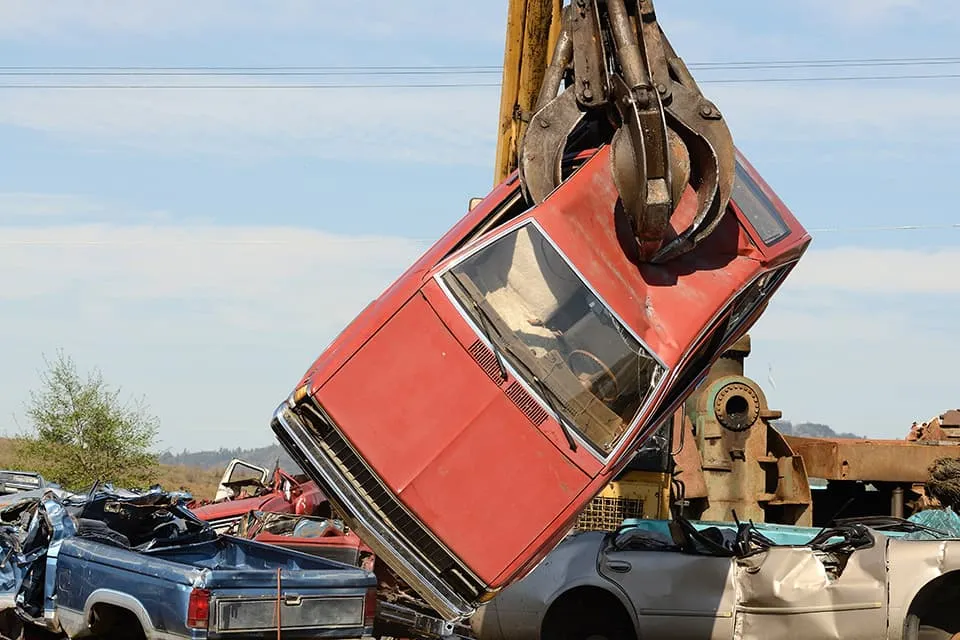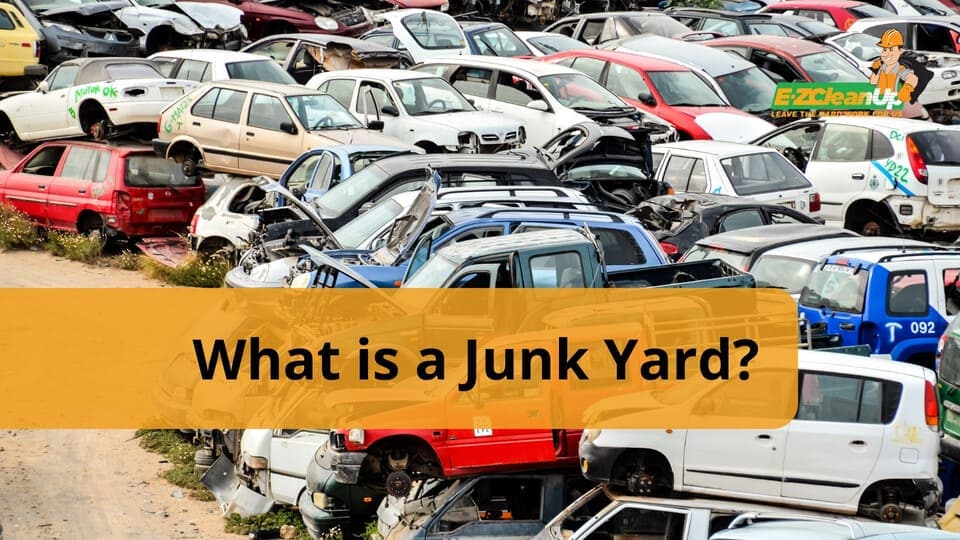The Financial and Environmental Benefits of Recycling Junk Vehicles
Recycling scrap cars provides various financial and environmental advantages that prolong well beyond waste decrease. These advantages highlight the complex value of reusing junk autos, yet there are even more elements to think about when assessing its complete effect.
Lowering Landfill Waste
Reducing land fill waste through the recycling of junk cars and trucks plays a pivotal role in environmental preservation. When vehicles get to the end of their life cycle, reliable reusing processes can substantially lower the quantity of waste that finishes up in land fills. Junk vehicles, otherwise effectively reused, add to the growing issue of landfill overcapacity, intensifying environmental deterioration and possibly contaminating dirt and groundwater with hazardous materials such as oil, gas, and hefty metals.

In addition, the recycling process minimizes the damaging impacts of automotive waste on biodiversity. Landfills are well-known for interrupting local communities, and decreasing the influx of scrap cars and trucks assists preserve all-natural habitats. Inevitably, recycling scrap cars and trucks is a critical method that fosters sustainable waste management, lining up with wider ecological goals.
Conserving Natural Resources
In enhancement to mitigating landfill overcapacity, reusing junk cars and trucks plays a significant duty in saving natural resources. By recycling scrap cars and trucks, we significantly lower the demand for raw materials, therefore curbing the ecological degradation associated with mining tasks.
Moreover, the process of recycling vehicle elements such as aluminum, lead, and copper is much less energy-intensive than generating these materials from virgin resources. This power financial savings converts straight into reduced nonrenewable fuel source intake and lower carbon footprints (junk car buyers). Furthermore, by redeeming and repurposing materials, we expand the lifecycle of non-renewable sources, guaranteeing they stay offered for future use
In addition, reusing vehicle fluids like transmission, antifreeze, and oil fluid stops harmful compounds from contaminating dirt and water sources. Through methodical recycling initiatives, these fluids can be purified and recycled, advertising a round economy and further reducing the pressure on natural deposits. Thus, reusing scrap autos provides a complex method to preserving our earth's indispensable natural properties.
Developing Job Opportunities
The recycling of junk automobiles not only profits the setting but also stimulates economic development by creating work opportunities. This blossoming sector provides a wide array of employment leads, varying from the preliminary collection and transport of old vehicles to the complex processes of taking apart, arranging, and repurposing the numerous elements.

The proliferation of reusing plants further enhances the work market, requiring duties such as engineers, equipment drivers, and quality assurance specialists to ensure and take care of the sophisticated machinery conformity with environmental policies. Also management positions, such as sales, advertising, and customer care, see a rise as the market increases.
Lowering Production Costs
By integrating recycled materials from scrap autos, producers can dramatically decrease manufacturing prices. The application of recycled steel, light weight aluminum, and various other useful metals decreases the need for basic material removal, which is both costly and energy-intensive. This not just saves all-natural sources but likewise translates into significant price financial savings for automobile suppliers. The power needed to process recycled products is dramatically much less than that needed to produce new materials from square one. This decrease in power usage click for more info directly associates with lowered production expenses.
Moreover, the recycling procedure helps improve the supply chain by giving a constant influx of materials that are conveniently available and frequently less costly than recently mined resources. These price efficiencies are specifically important in an extremely affordable market like you can try this out auto manufacturing, where margins can be razor-thin. Furthermore, the recycling of junk vehicles aids reduce the unpredictable rates of raw materials, allowing manufacturers to better projection and regulate their manufacturing budget plans.
Offering Budget Friendly Auto Parts
When junk autos are reused, the accessibility of cost effective car components dramatically boosts, profiting both customers and fixing shops. Recycled automobile parts are often cost a portion of the cost of brand-new components, offering an economical alternative for car proprietors and technicians. This affordability can be vital for people who might not have the financial means to acquire brand-new elements, enabling them to keep their automobiles in functional and safe problem.
Repair shops also get from this raised availability of affordable components. By sourcing recycled elements, these organizations can reduce their functional expenses, which can be passed on to clients through reduced solution costs. This, in turn, can lead to higher customer contentment and loyalty, as clients value the expense financial savings without jeopardizing on top quality.
Furthermore, the high quality of recycled parts has enhanced significantly for many years, many thanks to improvements in recycling processes and quality assurance measures. Several recycled components go through extensive testing to ensure they fulfill industry criteria, providing integrity equivalent to repairs - sell my junk car today. By providing a high-quality and economically sensible alternative, the recycling of scrap cars and trucks plays a pivotal role in supporting both the vehicle repair work sector and the wider customer market
Final Thought
Reusing scrap automobiles presents significant economic and ecological advantages by considerably reducing garbage dump waste and preserving natural resources. On the whole, the recycling of junk automobiles sustains both financial development and sustainability goals.
Recycling scrap cars presents countless financial and ecological benefits that blog here prolong well beyond waste reduction. Scrap cars, if not correctly reused, contribute to the expanding issue of land fill overcapacity, intensifying ecological deterioration and possibly polluting soil and groundwater with hazardous materials such as oil, gas, and hefty metals.
By recycling junk cars and trucks, we significantly minimize the demand for raw materials, therefore curbing the ecological deterioration linked with mining activities.When scrap automobiles are reused, the accessibility of budget-friendly auto components significantly increases, profiting both consumers and repair shops.Recycling junk vehicles provides considerable financial and ecological benefits by significantly minimizing land fill waste and saving all-natural resources.